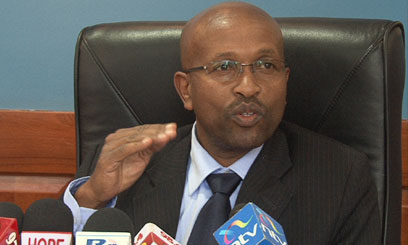The Petroleum Institute of East Africa (PIEA) is the latest to voice its displeasure over the release of the preliminary estimates saying the move has the potential to distort the market and impact supply of the products.
“While the government and the regulator have the prerogative to announce provisional petroleum prices, it is critical to be cognisant of the adverse economic repercussion that may inadvertently arise from this practice,” PIEA General Manager Wanjiku Manyara cautioned.
On Sunday, ERC projected that super petrol prices would fall by between Sh3.50 and Sh4.50 per litre while that of kerosene and diesel could decline by about Sh6 or Sh7 in its January 15 review.
If the anticipated reduction is effected, it will bring down the cost of super petrol to between Sh114.56 and Sh115.56; that of diesel to around Sh104 and kerosene to retail at around Sh84 per litre.
In a statement, ERC Director General Eng Kaburu Mwirichia cited the ‘positive trend’ in November to December 2011 of both the international prices of crude oil and refined products and the average mean exchange rate which are the two main factors that drive the retail pump prices in the country.
“Taking these trends into account, the next price review due on January 15 2012 is expected to result in the reduction of pump prices. The exact reductions will be announced after the calculations are finalised,” Eng Mwirichia had announced.
This was the second time in two months that the government was hinting that fuel prices would come down.
ERC’s projections also came despite the government’s ‘gagging order’ on Kenol Kobil which in mid 2011 used to give its predictions but which was stopped on the grounds that it lacks the moral authority to do so.
The decision was possibly taken to prevent a backlash from the public that has been outraged as they have been paying more for the commodity for the most part of last year despite the implementation of the price control formula in December 2010, which was expected to provide some reprieve.
However, the PIEA, which draws its membership mostly from oil marketing firms and individuals from the petroleum industry with the main aim of promoting their interests, argued that a dip in the fuel prices was obvious and anticipated given the reduction in the global petroleum prices and the strengthening shilling.
“(A) reduction in the local petroleum prices and ultimately reduction in the inflation rate is expected to become a reality this quarter,” she stressed.
The institute recommended that the regulator should stick to its timetable of announcing the review of the maximum costs that petroleum products should retail at as stipulated in price control regulations.
“This will prevent undue decisions being made by the retailers who would not want to end up with expensive stock with imminent price reductions or hoarding when prices are predicted to increase thereby impeding security of supply,” the manager went on.
Despite the seemingly noble move, Consumers Federation of Kenya (Cofek) Secretary General Stephen Mutoro continues to advocate for the withdrawal of the regulations saying they have failed to cushion consumers from the oil price fluctuations as had been expected.



































